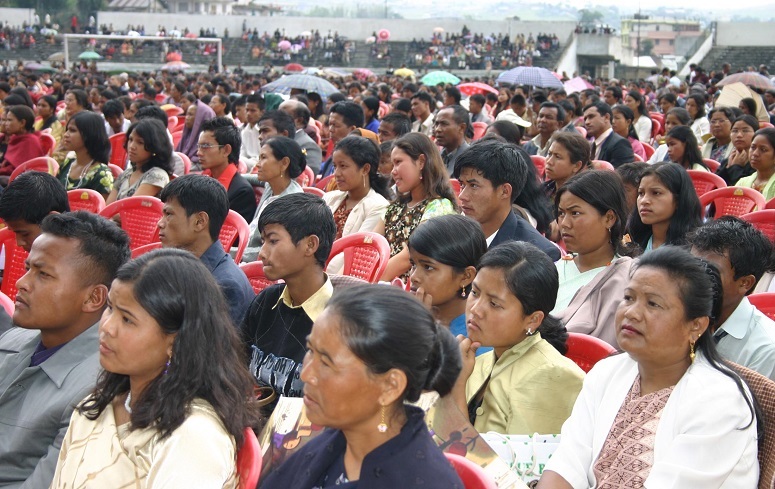
India’s pro-Hindu nationalist Bharatiya Janata Party (BJP) is now the governing party in two Christian-dominated states in the northeast, following recent election successes in Nagaland and Meghalaya.
But to do so, it had to betray its core values of Hindutva, according to John Dayal, former National President of the All India Catholic Union.
Dayal, writing for Asia News, said its successes were based on a “chameleon-like attitude”, noting that in its nationalistic heartland it supports extreme policies like the ban on beef, but in the northeast, where most people eat beef, BJP supporters are also allowed to.
The BJP won 12 seats in Nagaland, which is over 90% Christians, despite warnings from the Catholic Bishops’ Conference of India about how the party’s Hindu-nationalist agenda was dangerous for Christians.
Since the BJP came to power in 2014, radical Hinduism has increased steadily, as has violence against Christians. World Watch Monitor reported how 2017 was one of the most traumatic years for Indian Christians in a decade, with 351 verified incidences of hate crimes.
But BJP Junior Home Minister Kiren Rijiju, who led the party’s poll bid in Nagaland, said: “Our opponents have nothing to say about us, as we have tackled corruption and other issues successfully.”
In another piece for AsiaNews, Ram Puniyani, president of the Mumbai-based Centre for Study of Society and Secularism, said it was the BJP’s “flexibility”, supported by significant resources and an army of volunteers, that helped it to address specific issues in each state.
In Meghalaya, almost 75% Christian, he said the party won because of its “all-round clout, including its money and muscle”, forming an alliance with a regional party, which was invited into a governing alliance with the state’s largest party, the Indian National Congress.
The BJP also rose to power in the north-eastern state of Tripura, which is majority-Hindu, overturning 25 years of communist rule. A mother of three told UCAN: “The Hindu slant of the BJP has been an issue. But if Christianity could survive under communist rule, it can survive under the BJP and Narendra Modi.”
Catholic lay leader A.C. Michael told UCAN: “Unfortunately, Christians have not yet realised their political strength, nor become aware of ways to assert their political rights.”
But it wasn’t all good news for the BJP, which lost all three polls in its traditional strongholds of Uttar Pradesh and Bihar.
This year’s elections of state legislative and other bodies in India are seen as crucial, especially for the BJP, in the run up to next year’s general elections. The party is currently governing, alone or in alliance, in 22 out of 29 states.